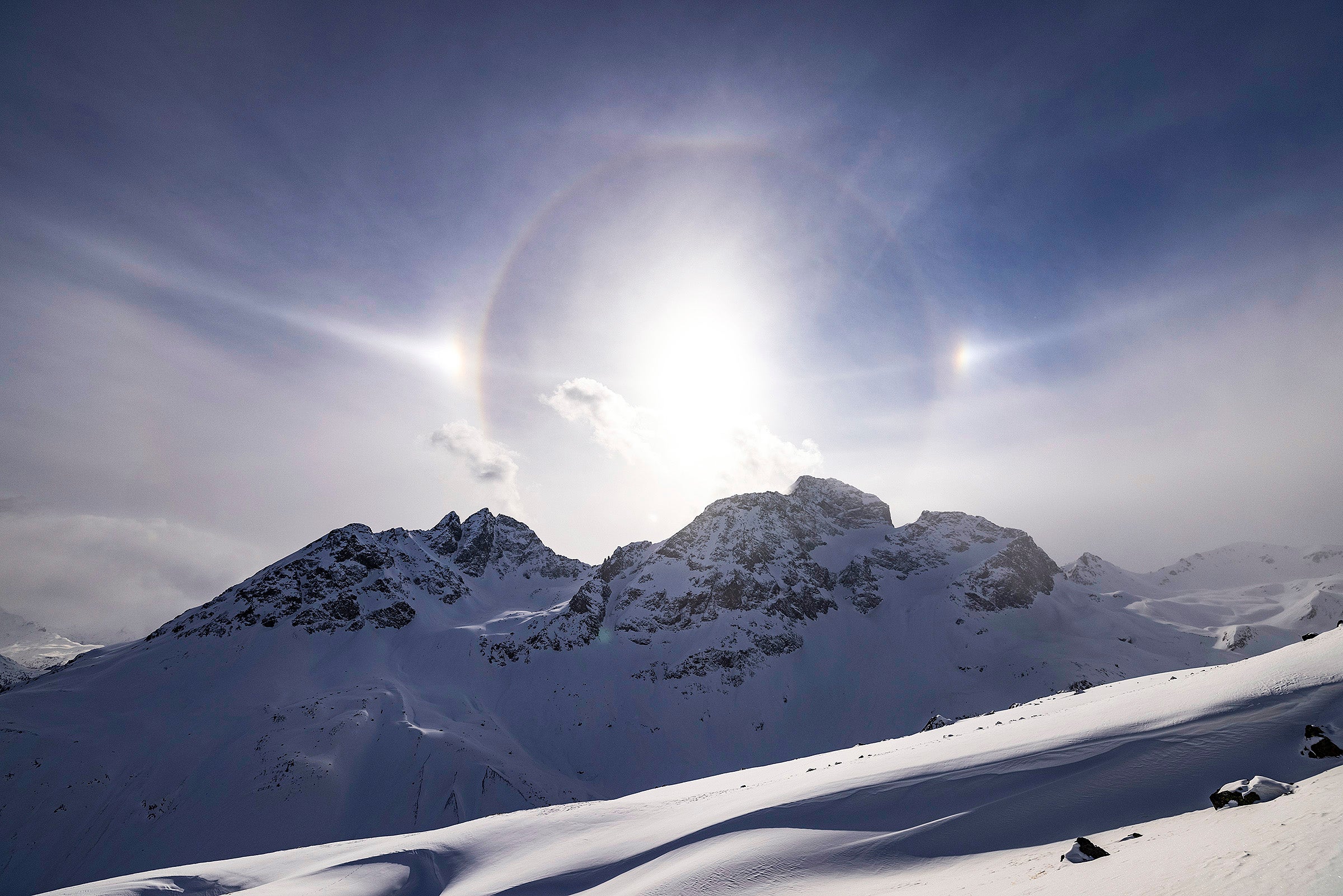Skiing is Essential to Your Mental Health (Doctors Agree)

(Photo: Oskar Enander)
“You don’t need to ski.”
How does that sit with you? How did it sit with you when a chorus of thousands yelled it at you over the Internet a year ago, when you considered leaving your home during one of the most disorienting moments in generations to do that simple thing that brings you back to center?
The lifts were closed, but we still had our two feet. So defiant snow sliders jammed the sides of Colorado highways with parked cars to go ski touring. All the while, the world looked on with the stance of a disappointed high school guidance counselor dealing with vexed children.
These were not children, though, these were grown people; ones who were otherwise productive, upstanding members of society. In any other context, going skiing wouldn’t brand them as bad humans, but in this one it did. And yet they went anyway. Is that because they were belligerent products of privilege, as the media made them out to be, or was it something else?
Maybe skiing actually is essential.
Of course, we won’t die if we don’t do it, but is that what defines a need? According to John Coleman, no. He’s a decorated mental performance consultant and registered clinical counselor who formerly lived in Canmore, Alberta, and is now based in Sooke, B.C. A big part of his practice focuses on athletic performance, and he works extensively with mountain athletes, having spent many of his own years in the highest places he could get to.
“In Maslow’s hierarchy of needs, skiing isn’t right there next to food,” he tells me. “But we need community, we need connection with people, and we need movement—we’re born into movement. And skiing is a vehicle for all of those needs, especially if you live in a ski town.”
Coleman notes that when he was going through a rough patch in high school, his doctor wrote him a prescription to go skiing. It worked. Skiing made him happier and ultimately healthier. That’s helped frame his understanding of the mind-body connection ever since.
“In a really simple way, the mind is our lens of perspective on life,” he explains. “A healthy mind is able to go into deep states of rest, and it has the ability to integrate our lens of perception: our lived experiences. Most people are pretty good at being busy, but by and large, a lot of us aren’t very good at relaxing. We need to connect with other people and nature. Depression is the opposite—when we go further and further in, and don’t have that connection. So something like skiing, when you’re dealing with other people, and engagement, and uncertainty, you’re fired up. That connection is so critical for our minds, our mental health because you get that high intensity, and then that natural relaxation after. You just go do it, and your nervous system takes care of the rest.”
There’s of course a raft of research that continues to affirm this, that time outside is paramount to a healthy constitution. Study after study directly links exercise to mental and emotional wellbeing every year, but we already know that. What we don’t always intuitively know, though, is that in a world paved over in ribbons of tar, where concrete slabs and glass skyscrapers scab over the earth’s skin so you can’t actually get at it, there are few ways left to feel connected to the mother we came from.
Mountains are millions of years old, and pierce through the veil of human “progress.” They connect backward in time to a natural world we’ve otherwise done everything to supplant with human constructs. And when those constructs come tumbling down—through financial turmoil, the weight of social or familial obligation, or because of a once-in-a-hundred-year pandemic—for skiers, mountains become the most important touchstones.
“When you are in mountains, you are connected to a bigger rhythm, a seasonal flow,” Coleman confirms.
Another way to put is, however frivolous a thing it may seem from the outside, if skiing’s part of your mental health routine, losing it is legitimately wrenching. And that’s something we still haven’t allowed ourselves to admit over a year after we first started testing our ability to go without it: that it’s legitimately fucking hard.
Moving up and down mountains with sticks on your feet makes a skier feel whole—wrapped in primordial elements, part of the cosmic continuity. Netflix cannot substitute that.
So for those of us who lost skiing last year, either through closures or the crush of social shame, or have lost it since, to injury, circumstance, or misfortune, that loss is genuine trauma. It is legitimately hard not to ski, and you are not weak or selfish. So don’t let anybody tell you otherwise on your journey back to center.
Matt Coté is a writer and editor based in Canada, of which we are normally very jealous, but less so right now.